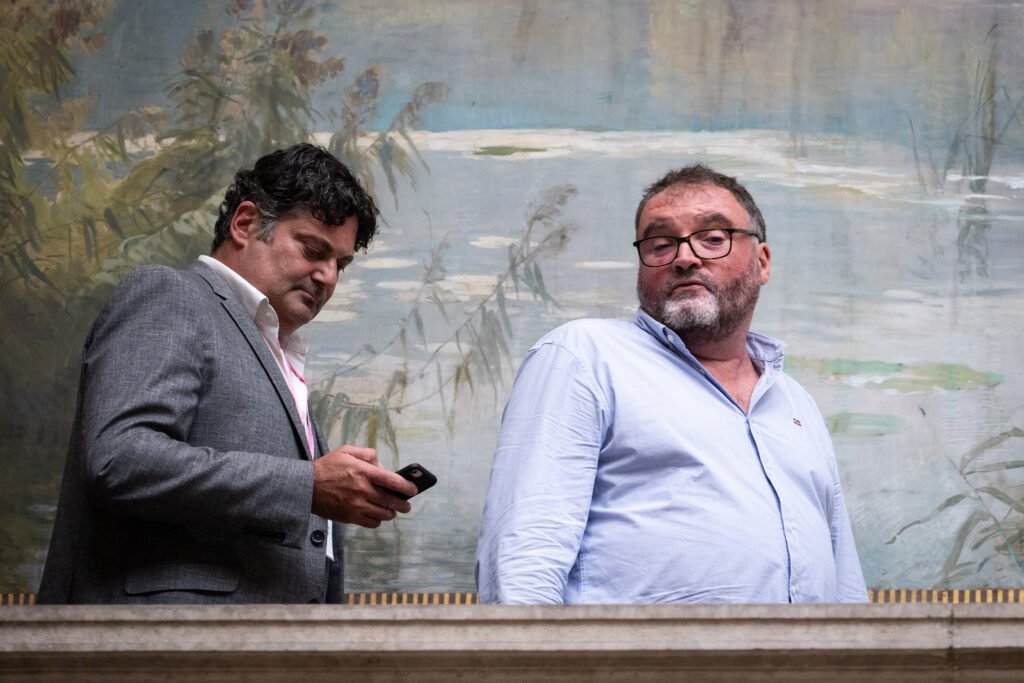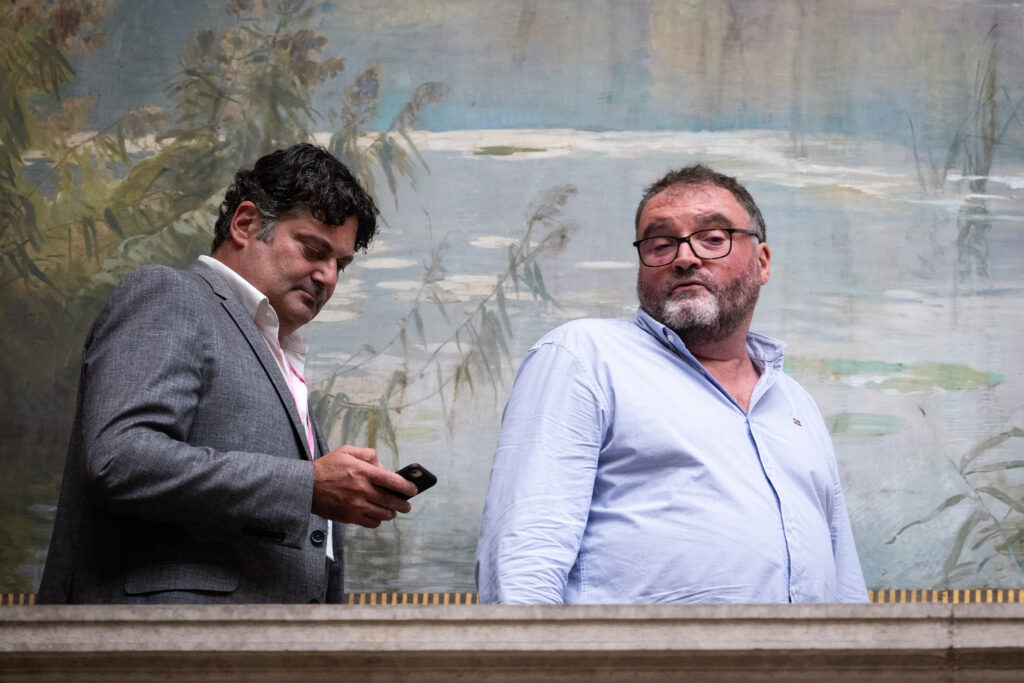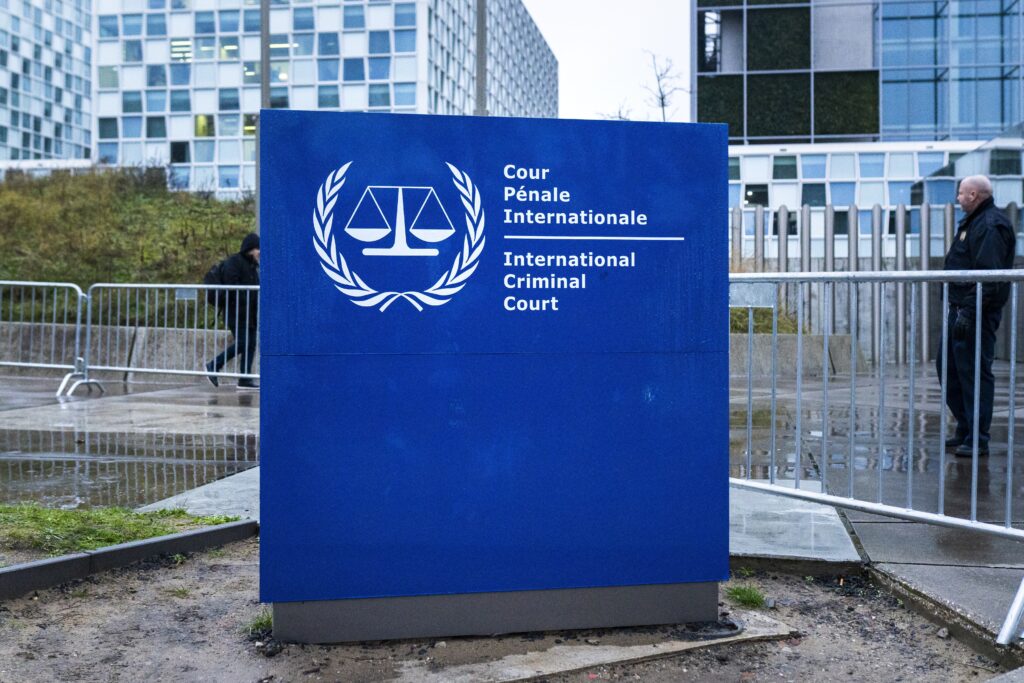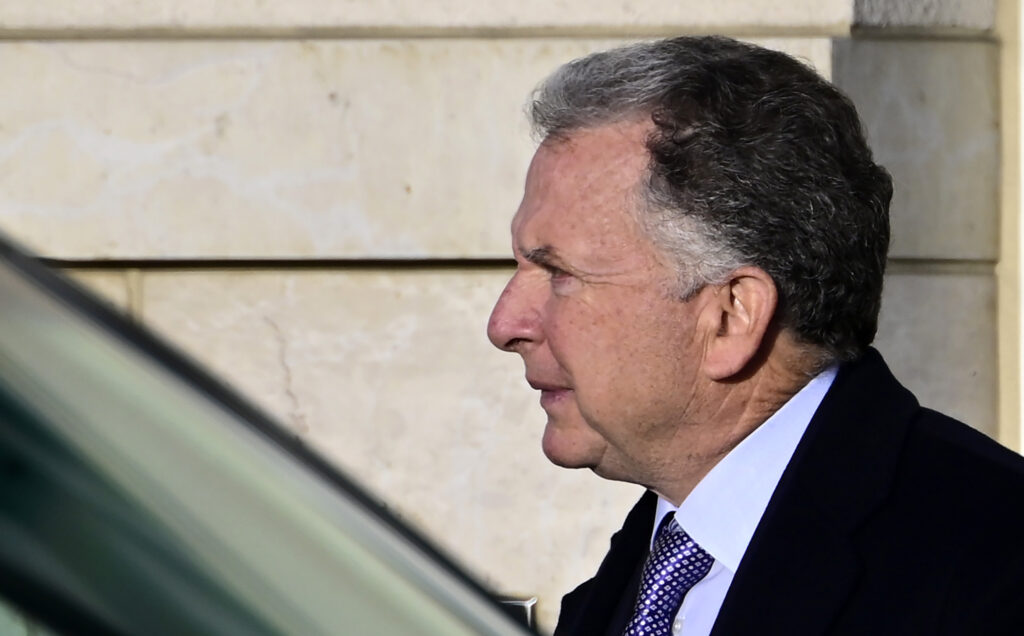Trente patients empoisonnés, dont 12 sont morts: au terme d’un exceptionnel procès de trois mois et demi, l’anesthésiste Frédéric Péchier a été condamné jeudi à Besançon à la prison à perpétuité pour l’ensemble des faits qui lui étaient reprochés, un verdict contre lequel il va faire appel.”Douze morts, 18 rescapés: c’est le plus grand criminel du siècle, un des plus grands criminels de l’histoire judiciaire française”, a commenté Stéphane Giuranna, avocat de nombreuses parties civiles, estimant que le verdict “ne pouvait pas être autrement”.La peine est assortie d’une période de sûreté de 22 ans. “Vous allez être incarcéré immédiatement”, a lancé au condamné la présidente de la cour, Delphine Thibierge. Le praticien, qui comparaissait libre devant les assises du Doubs, n’avait jamais été détenu depuis le début de l’enquête en 2017. Il lui est interdit aussi “d’exercer la profession de médecin à titre définitif”. La cour a suivi l’accusation, qui avait requis la réclusion à perpétuité contre l’ancien médecin star de 53 ans, coupable selon elle d’avoir “utilisé la médecine pour tuer”. A l’inverse, son avocat Randall Schwerdorffer avait demandé à la cour de l’acquitter “purement et simplement”, faute de preuves irréfutables. Ce dernier a réaffirmé jeudi être convaincu de l’innocence de son client et annoncé qu’il allait faire appel et “demander sa remise en liberté”. “C’est la fin d’un cauchemar”, a déclaré Sandra Simard, l’une des victimes. “On passera Noël un peu plus tranquilles”, a réagi une autre victime, Jean-Claude Gandon.L’ensemble de la famille de l’anesthésiste était venue le soutenir. Ses filles, en larmes après l’annonce des premiers verdicts de culpabilité, ont quitté la salle. Leur père est lui resté impassible, le regard fixe, le visage fermé à l’annonce de la sentence.”C’est quelqu’un de très réservé, qui n’est pas très expansif sur ses émotions”, a dit M. Schwerdorffer.- “Je ne suis pas un empoisonneur” -Ce verdict survient après 15 semaines d’audience denses, parfois techniques et souvent poignantes. Les faits ont été commis entre 2008 et 2017 dans deux cliniques privées de Besançon, sur des patients âgés de 4 à 89 ans.Lorsque la parole lui a été donnée une dernière fois lundi, Frédéric Péchier a à nouveau clamé son innocence. “Je ne suis pas un empoisonneur”, a-t-il affirmé.Selon l’accusation, le praticien a pollué des poches de perfusion avec différents produits pour provoquer un arrêt cardiaque ou des hémorragies chez des patients opérés par des confrères. Son objectif: “Atteindre psychologiquement” des soignants avec lesquels il était en conflit et “nourrir sa soif de puissance”, selon le parquet.Après avoir réfuté cette thèse pendant l’instruction, Frédéric Péchier a finalement admis, au cours du procès, qu’un empoisonneur avait bien sévi dans l’une des deux cliniques privées où il a travaillé. Mais il a constamment répété que ce n’était pas lui.- En attente d’explications -Le procès a alterné témoignages déchirants de victimes et échanges tendus avec un accusé décrit tantôt comme un tueur en série dénué d’empathie, tantôt comme un “homme détruit”.Cassant et inflexible lors des interrogatoires, l’accusé a versé des larmes le 5 décembre en évoquant sa tentative de suicide en 2021, mais il s’est montré impassible pendant la lourde charge menée à son encontre la semaine dernière par les deux représentantes de l’accusation.Si le verdict est un soulagement pour les victimes, des questions restent ouvertes. On s’est senti “ému et soulagé” que “papa soit reconnu victime”, a déclaré Olivier Py. Mais le procès en appel, “ça va être dur (…) on repart à zéro”.Me Frédéric Berna a regretté que Frédéric Péchier n’ait pas avoué. “On a pu avoir éventuellement l’espoir que l’humanité lui revienne et qu’il soit en mesure de livrer quelques explications”, a déclaré l’avocat de parties civiles. “Je crois que sa seule porte de sortie digne aujourd’hui (…) ce serait qu’il se résigne à nous dire: +voilà pourquoi je l’ai fait, voilà ce que j’ai fait, voilà ce qui s’est passé dans ma tête+.”Archibald Celeyron, avocat du père de Tedy, la plus jeune victime âgée de 4 ans à l’époque, a dit lui aussi espérer obtenir “des explications” lors du procès en appel, afin de de savoir “pourquoi il a empoisonné ces personnes”.







